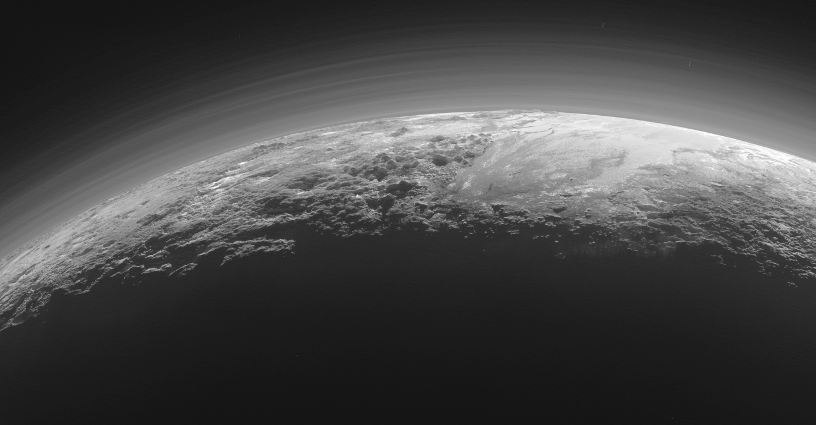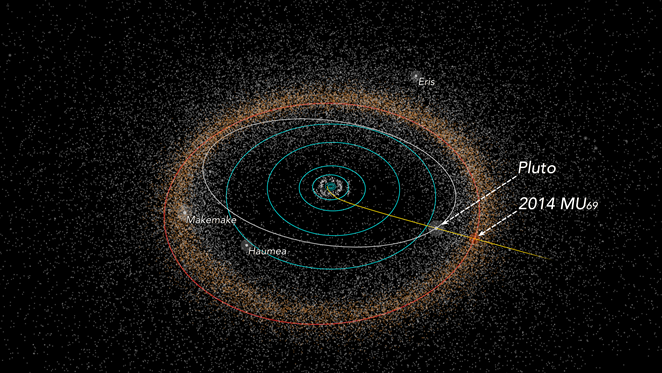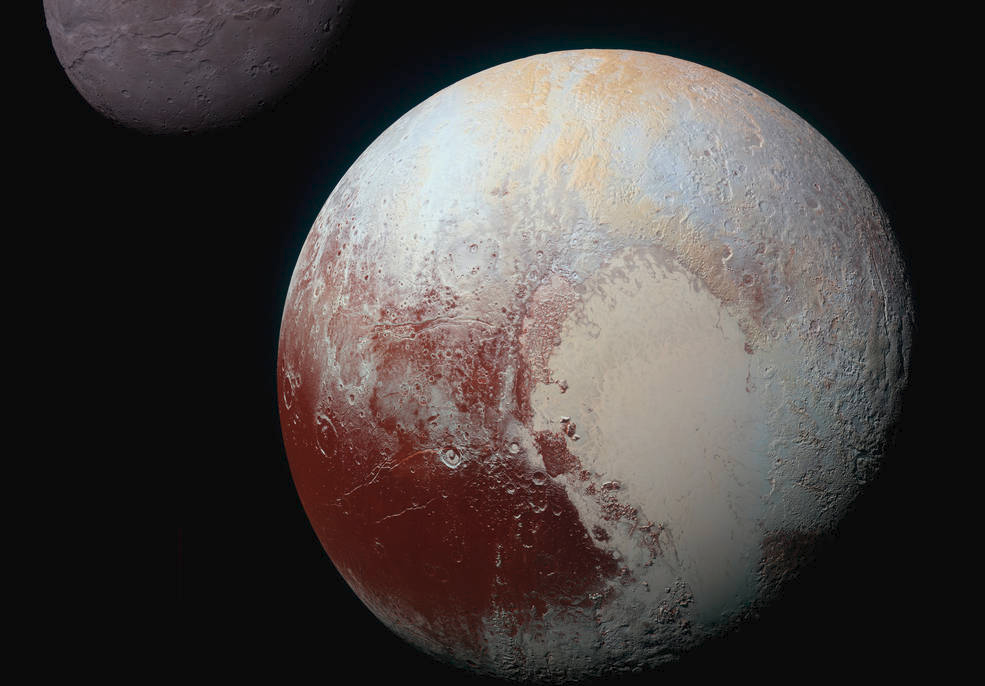
New stories about the former planet Pluto popped up in my news feed again this week. It has now been over a decade since the definition of what qualifies as a planet was voted over, but this is still a controversial issue to many. I too got a special place in my heart for Pluto, but should what astronomers classify it matter to me?
When I was a kid I often visited my grandparents on the weekends. It was on one such weekend my granddad taught me about the nine planets of our solar system. As perhaps most granddads, he enjoyed telling me stories and teaching me things that interested him. It is probably one of the reasons I became fascinated by astronomy at an early age.
This was the 80s, and at the time, the familiar line-up Mercury, Venus, Earth, Mars, Jupiter, Saturn, Uranus, Neptune and Pluto, was established fact. it had been since the 30s when my granddad was a teenager. However, the 2005 discovery of another object at the edge of our solar system, Eris, was going to threaten Pluto’s planetary status. Eris is about a quarter times larger than Pluto, so should it be designated the tenth planet? Or was it time to review the definition of what was a planet is. The International Astronomical Union did the latter in August 2006.

Image: NASA / Alex Parker
Not like the others
Pluto isn’t like the other eight planets anyway. First of all, its orbit is not in the same plane as the rest. The other planets are more or less twirling around on what remains of what was once the spinning disc of gas and dust. The cosmic platter the sun and the majority of the planets were spun on. Pluto, on the other hand, orbits at an angle of 17 degrees relative that of Earth’s orbit, or about 12 degrees relative to the sun’s equator. In addition it has a much more elliptic orbit than any of the other planets. Eris, and a lot of other smaller objects have similar type of orbits. There is clearly a difference between these objects at the edge of our solar system and our main planets.
The actual criteria that was established for the definition of a planet back in 2006, and which ruled Pluto and Eris out, was that they had not cleared their orbit of debris. The current definition goes like:
Planet: a celestial body that (a) is in orbit around the Sun, (b) has sufficient mass for its self-gravity to overcome rigid body forces so that it assumes a hydrostatic equilibrium (nearly round) shape, and (c) has cleared the neighborhood around its orbit.
Missing that third criteria, both Pluto, Eris and a number of other objects became known as dwarf planets instead. A lot of people were unhappy with this. It turns out many have a special place in their nerdy heart for this remote, rocky planet with the lovable name. As the other planets, Pluto’s name is rooted in mythology, but it is said that Disney was inspired to name Mickey Mouse’s dog after the planet, which may have something to do with its popularity.
Still, over a decade after Pluto’s demotion, people are still campaigning to have its status reinstated as reported by Wired a couple of days ago. But does it really matter?
Planet or not, Pluto is still Pluto
Classifications in science serve a purpose, and that is to organise data and observations into meaningful units that can be studied collectively. The danger of categories is of course that if we enforce them too strictly, they may hide important information that crosses these artificial boundaries. For instance the astronomer Rebecca Oppenheimer pointed out once in a talk I followed that the distinction between planets and stars suffers somewhat from this. There is a continuum from planets to stars. The main difference between for instance our largest gas giant Jupiter and our sun is mostly a matter of size. The sun burns by primarily converting hydrogen to helium, which also are the main components of Jupiter. The universe is full of very large “planets” or very small “stars”, known as brown dwarfs. Their fuzzy existence on the border of two much studied categories of astronomical objects doesn’t seem to be as interesting as it perhaps should be. See also her article published in Science on the topic of categories in astronomy.
So why does the demotion of Pluto matter? That is a good question. Does it really? Of course, Pluto couldn’t care less about either how we name it or classify it. But many of us who follow astrophysics do. Personally, and as a physicist, I don’t think that scientific classification should matter to how we view objects of interest.
After the New Horizons’ flyby in 2015 it has become pretty clear that our fascination with Pluto has not diminished because of its declassification. Maybe the big heart shaped formation on the southern part of it is Pluto saying to us it likes us too? So in my opinion, planet or dwarf plant: Pluto, we love you too!

Image: NASA / JHUAPL / SwRI





I still say Eris was an apropos name. (Seriously, anyone who remembers the flame wars over whether or not Pluto was a planet would agree.)